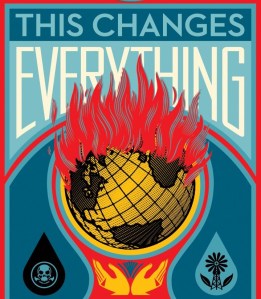Hopping on the trend train of reminiscing about the last decade, I too have decided to weigh in on what the 2010’s have meant to me. Will try to discipline myself to ponder mostly from my professional point of view as this decade has been formative in where I am today — an academic researcher who kind of knows what he wants to do with rest of his life.

This turned out to be a longish post. To keep you going, here’s a “decade apart” rendering.
The Job Hunt
In the autumn of 2009, I had freshly graduated from my Bachelor in Engineering in Electronics and Communication (E&C), from a decent tier 2 college in Bangalore. I had two on-campus job offers but none of the companies had provided any concrete starting dates. As those were also some harsh (the harshest had thankfully gone past) financial times of my family, I did not have the patience to sit around and wait for them to usher me in. The 2008 financial crisis was taking a slow but steady toll on the Indian Silicon valley with either delayed job offers or annulment of offers. Not as bad as the numerous jobs lost during those couple of years!
I don’t quite remember being personally bothered by these developments of delay in jobs or economic slowdown. I seem to have had the “push on” attitude that is all pervasive with the lower middle-class in India. I sometimes get concerned that I might have mellowed down now.
Anyway, I appeared for three other interviews during the 3rd quarter of 2009 in “electronics” companies. There was an idealistic stubborness that I would not stoop below my course specialisation (of E&C) and take up a job with software (mostly support) companies, which I assumed were aplenty. That I did not feel a pressure to compromise on this ideal, given even the dire domestic financial situations, I only have my mother to thank for. She was the lone bread-winner and was shielding us as much as she could.
I was adamant but not dormant. I was hunting for jobs. One of employment consultancies I was seeking support from arranged for my first job interview outside campus with a small “electronics” company. I remember being asked about circuit design — not the VLSI kind but more on the resistor bands and capacitor coupling — and a lot of time was spent on discussing soldering. I was not excited. Partly, because with my “good” academic records and the aspirations everyone held for me I did not see myself soldering circuits even for a short while as my profession. Also because I was not great at soldering circuits! That I did not get that job is another matter. I thought it was a fix-up interview by the consultancy to pretend they were doing what they claimed to do. Or of course also the fact that I was not fit for that job.
Then, around October 2009, I got my third job interview via an influential good Samaritan who had helped me with my higher education. I appeared for the interview, gratefully, and liked the description of what the company did and my possible roles. When asked about what my salary expectations were, I humbly told my recruiter to do what is the norm at their company as it was my first job. (Rookie alert!)
I got the job and I started on 1st November, 2009. Along with it, as the cliches go also my lessons in life had started. Most importantly, I had also embarked upon discovering what I really wanted to be.
It turned out that the amazing description of what the company was doing was a bloated-pile-of-garbage, as any manager worth their salt would muster up and throw at a newbie. Also, asking them to pay me the norm meant, I was getting paid the least possible 5 digit number. So much so that I was way below even the income tax bracket.
I had a daily supervisor who was mean for the heck of it. He was more worried about the number of hours I clocked in than the actual work either I or anyone else did. He was a nice guy but had these traits I could not bear to ignore.
I got my on-campus job offers some six months into this job but I did not quit, primarily to seem loyal and show gratitude to my good Samaritan (who, of course, was blissfully unaware of these actual employment conditions). After about one year of squirming, I started working with a new supervisor who was quite the contrarian to my earlier supervisor. We resonated at various levels but at the end of the day we both had our daily grind of mundane chores to get through. Relatively speaking, it was more exciting simply because of this supervisor. He had noticed, and was respectful of, my skills and even expressed his discontent about me staying on at that company. I did not, of course, mention the good Samaritan and only deflected the topic those couple of times he brought it up. So he thought. I don’t think he ever realized, but these questions gave me a lot of confidence to think beyond becoming the proverbial frog-in-the-well. I have never gotten a chance to actually thank him for instigating me to jump out of the well!
So, yes I did jump out of the well. And where to, you ask?!
Assistant Professor before being one
I took up teaching Bachelor students at my alma mater, from August 2011 to July 2013. This role, I started out in, should only be considered as one that of a teaching assistant when gauged in international standards. But within the crowded Indian engineering college market I was an “Assistant Professor”. I am embarrassed now for having flaunted that title. But hey, I did not know any better then!
The impulse to want to teach was brewing in me through the two years of working at my first company. My weekends were reserved to conducting workshops on Free & Open Source Software (FOSS) with my network at FSMK that comprised of the best people in the world.

Other than discover my passion for teaching FSMK also groomed me into an activist, and arguably into a better person.
During these workshops, I was slowly discovering the joy for teaching. I was soaking in immense enthusiasm and inspiration by working with students. There were actual sleepless nights, when I was dreaming of quitting my job and taking up teaching. But I did not know if that was feasible as I only had a Bachelor degree and I could not afford a Masters’ degree at that point to be able to even apply for a teaching position.
The conflict grew stronger by the day and during one of those sleepless nights I metamorphosed and impulsively composed my resignation letter and handed it to my supervisor the next day. He was shocked as he assumed I was becoming comfortable being the frog in the well — a good one even.
I did not have a back-up plan. I had appeared for one interview at my alma mater, competing with far more senior people with academic credentials I certainly did not have.
But, as the story goes, I anyway got the job and it would herald the happiest two years of my life. It is during these two years that I rediscovered my love for signal processing, which I maintain is what I do even today with all the fancy jargon about Machine Learning and AI being thrown around. My students — or rather my friends — were a great source of hope and inspiration. It is as if I was improving on a daily basis bouncing off ideas and inspirations with them.
I have written a lot about this time in several posts; so will not delve deep into it here.

This is my favourite picture from my early days as a “teacher”. So many people in this picture mean so much more to me today 🙂
The gist of it is that I was convinced by the first few months in my new role that I wanted to do that for the rest of my life. But, I wanted to do it better and I had/and continue to have hopes of changing the “system”.
I sought to pursue my Masters in India and took up the entrance exams. With meek preparations backing me I barely qualified. I had no chance of getting into the tier-1 institutions in India.
I got carried away and started looking at options outside India. Even with the certain knowledge of the fact that I was not in a situation to afford the expenses. Not just affording the expenses but as I came to realize I was not even eligible for education loans as we did not have collateral to show to the bank. At the least, this improved my understanding of how loans worked!
While painstakingly crawling the web pages for any scholarship options, one of my good friends now and a student back then pointed me to one scholarship challenge she was looking at and thought I might have a good chance at it. I was uninterested in this application, as it was only a fee waiver for an MS degree in Sweden, and I could not have afforded to live in Sweden without a stipend. Nevertheless, just to have fun with the quizzes I applied. And it turned out just that year the scholarship program had some additional funds and were also offering stipend.
And, skipping past the long story short I got it! Phew.
I was awarded a scholarship to study at Chalmers in Sweden and it was all so surreal. I have also written about this elaborately in couple of posts.

The event itself was suspenseful as I did not know if I had the scholarship or not until a reality-show style announcement after weeks of interviews and a day of interaction! That only made it memorable 🙂
Before I take you, the reader, outside India, I should also admit here that I fell in love with my partner while I was teaching. She was a student at the college. She was then all the hope and joy in my life. And now we are a married couple. She is now all the hope and joy in my life.
~Dr. Raghavendra (outside of Denmark)

Defending one’s PhD in Denmark does not automatically warrant a Dr. title! Thankfully for me.
Thanks to the serendipitous scholarship, I moved to Sweden in August 2013 and completed my MS in Communication Engineering in 2015. I was all the more driven to doing academic research. I was beginning to understand the hardships that come along when seeking a serious academic life.
As I was single-minded about what I wanted to do with my life, I applied for PhD positions in Northern Europe (for reasons I discuss in this post). And second of the positions I interviewed for, at University of Copenhagen, was offered to me where I continue to relish my daily work.
Between 2015 and 2018 I further understood the nuances — both positive and negative — of academia and only have grown stronger in my commitment to staying in academia.
As it happens, defending a PhD in Denmark does not yield one with a “Dr” title! One has to do an additional thesis and defend it, more as an independent researcher to obtain the “Dr” title. Nevertheless, outside of Denmark it is still the same degree that grants you the coveted academic title.
To be honest, nothing embarrasses me more than being addressed Dr. Raghavendra! Not even the fact that I was already an Assistant Professor way back in 2011 in Bangalore!
Looking ahead…
The rest of this decade is still a journey that is unfolding. I am trying to figure out what sort of a researcher I will end up becoming.
One year of post-doc time has given me some wind under my wings. I have some more time in this role and we will see if this wind was sufficient to let me soar at least above the ground or if I will have to walk the rest of my life.
I foresee harder questions — about how my academic life will contribute back to the society (beyond research itself) — will occupy me the most in the next decade.
Wishing you all a satisfying year and a peaceful decade ahead.
Stay inspired.
PS: As it happens, I had an year end blog post from 2009 where I sound so cryptic that it took me a while to figure out what I was talking about. Listen to that immature fellow from a decade ago here!

This has also been my decade of discovering running as a passion. 2019 is the strongest year this far!

A party with cosplay that I did not expect to enjoy as much as I did. Must be the people 😉

This turned out to be a longish post. To keep you going, here’s a “decade apart” rendering.












